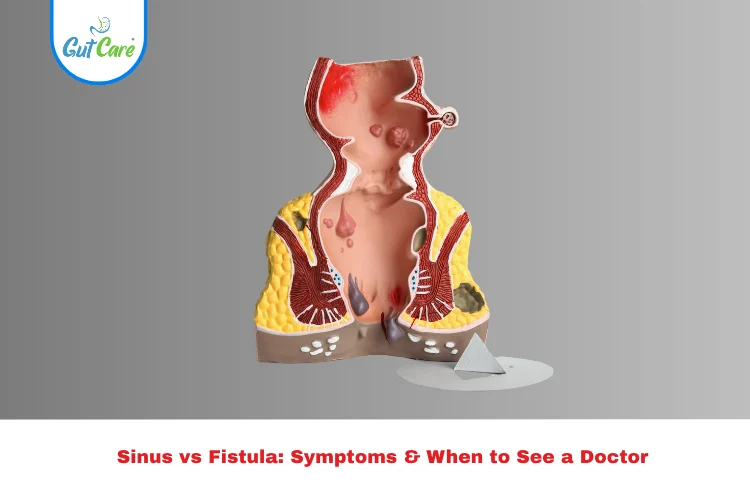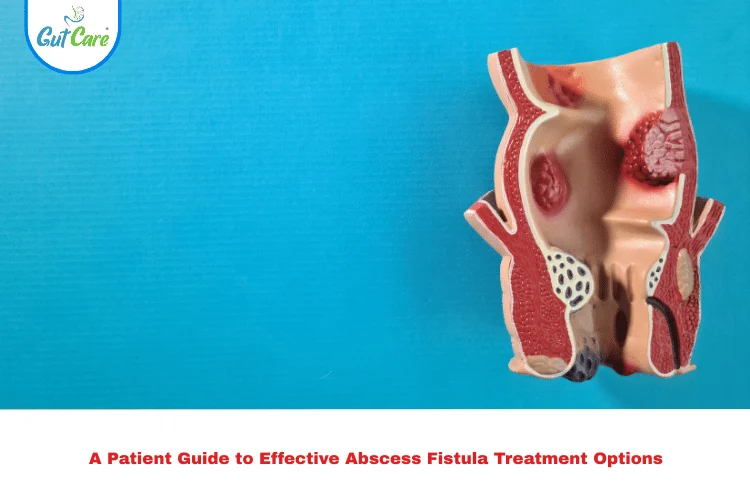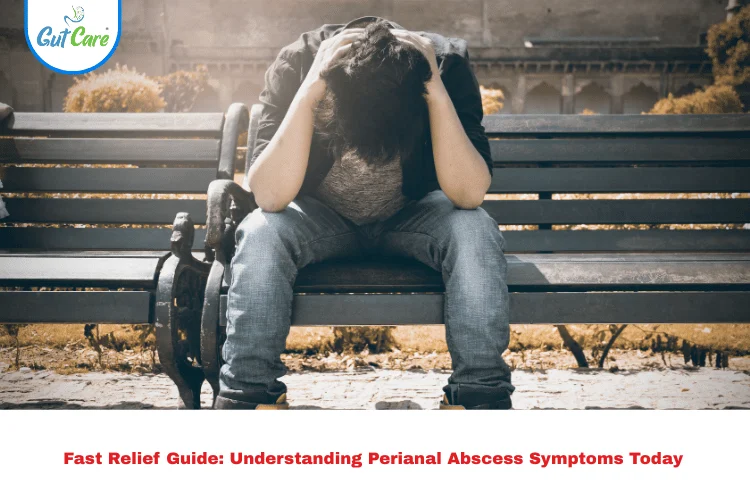When you’re dealing with discomfort in sensitive areas of your body, especially around the anal or perianal region, terms like “sinus” and “fistula” can sound confusing. Many people aren’t sure what they’re dealing with—or if they need medical treatment at all. If you’ve been searching for “Sinus vs Fistula”, this guide will help you understand the differences, symptoms, causes, and available remedies.
Whether you’re looking for natural home solutions or professional treatment options in Bangalore, GutCare Clinics offers reliable and specialized care for both conditions.
Table of Contents
What Is a Sinus?
A sinus tract is a small, abnormal tunnel or cavity that can develop under the skin. It often results from an infection or abscess and may not always have an external opening. In some cases, a sinus may drain pus or blood and can be quite painful.
Common Causes of Sinus Tracts
- Chronic infections
- Ingrown hairs (especially pilonidal sinus)
- Repeated abscess formation
- Trauma or surgery
Symptoms of a Sinus
- Small, dimple-like opening in the skin
- Foul-smelling discharge
- Mild pain or swelling
- Redness or tenderness
What Is a Fistula?
A fistula is an abnormal connection between two internal organs or between an organ and the skin. One of the most common types is the anal fistula, which forms between the end of the bowel and the skin near the anus.
Common Causes of Fistula
- Abscess that didn’t heal properly
- Crohn’s disease or other inflammatory bowel diseases
- Tuberculosis
- Post-surgical complications
Symptoms of a Fistula
- Persistent discharge (pus or blood)
- Pain during bowel movements
- Fever or chills if infection is present
- Skin irritation
Sinus vs Fistula: Key Differences
| Feature | Sinus | Fistula |
| Definition | Abnormal tract without complete passage | Abnormal connection between two body parts |
| Location | Skin surface or under it | Usually between internal organs or to the skin |
| Discharge | Pus or clear fluid | Pus, stool, or blood depending on location |
| Treatment | May require minor surgery or antibiotics | Usually needs surgical correction |
Understanding sinus vs fistula helps you recognize the severity and the correct path to recovery.
When Should You See a Doctor?
While home remedies can help with mild cases, persistent symptoms like pain, swelling, pus discharge, or fever require professional medical care. Ignoring the issue can lead to complications like recurrent infections or worsening of the condition.
At GutCare Clinics in Bangalore, expert colorectal specialists provide advanced diagnostics and minimally invasive treatments tailored to each patient’s needs. If you’re unsure whether you have a sinus or a fistula, their team can give you a precise diagnosis and a clear treatment plan.
Preventive Tips
- Maintain good hygiene in affected areas
- Avoid sitting for prolonged periods
- Don’t ignore recurring abscesses
- Manage underlying conditions like diabetes or IBD
- Regularly clean and inspect areas prone to ingrown hairs or infections
Conclusion: Know the Difference, Choose the Right Care
The knowledge about the differences between sinus and fistula is very important to ensure that the treatment is done correctly. The two are quite different from each other in terms of the source, the indication, and the methods of treatment. The use of home remedies may relieve the symptoms of pain but in most cases, professional help is required in order to be sure that no complications occur. If you are not quite sure about your condition and your symptoms are still there, you can get a consultation from specialists at GutCare Clinics, Bangalore, for they will give you the right diagnosis and provide you with the necessary care. Besides removing the discomfort, the early diagnosis and treatment are also beneficial in preventing the development of chronic diseases.
FAQs About Sinus vs Fistula
1. What is the main difference between a sinus and a fistula?
A fistula differs from a sinus only in the structure. A sinus is a cul-de-sac channel while a fistula establishes a connection between two body parts or an organ and the skin. Both may be of a similar appearance but demand different types of treatment.
2. Can a sinus or fistula heal on its own?
Only very mild sinus cases could be self-limiting with the application of hygiene and home care, however, in most cases, such as anal fistulas, the absence of medical or surgical treatment will not result in their healing.
3. Are home remedies effective for treating sinus vs fistula conditions?
Relieving symptoms, such pain, or swelling, that may come along when using home remedies is very likely but the cause of the continuous fistula symptoms will not be eliminated. Preventing and controlling chronic complications require a proper medical diagnosis.
4. How is an anal fistula diagnosed?
In the process of physical examination, imaging methods including MRI, or a colonoscopy, physicians try to locate an anal fistula. Correct diagnosis is a decisive factor for successful treatment.
5. Do GutCare Clinics in Bangalore treat both sinus and fistula cases?
Indeed, GutCare Clinics in Bangalore is the one that can easily identify and treat the patients of both sinus and fistula problems by utilizing the most innovative and minimally invasive procedures.




